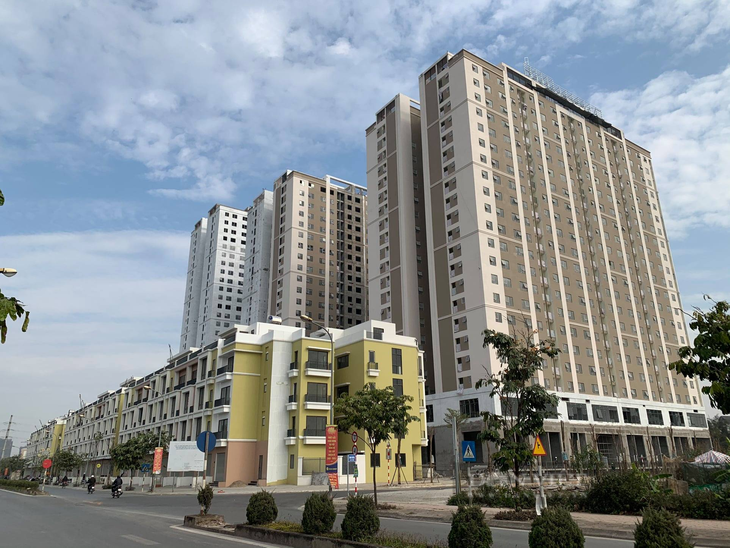The Vietnamese government has assigned the State Bank of Vietnam (SBV) to deploy a credit package worth VND120 trillion (US$5.1 billion) for developing social housing projects and upgrading deteriorating apartment buildings.
The credit package is part of the government’s solutions to develop social housing projects, helping boost the safe, healthy, and sustainable development of the local real estate market.
In particular, the central bank will direct commercial banks, mainly four state-owned banks -- the Vietnam Bank for Agriculture and Rural Development (Agribank), the Joint Stock Commercial Bank for Investment and Development of Vietnam (BIDV), the Joint Stock Commercial Bank for Foreign Trade of Vietnam (Vietcombank), and the Vietnam Joint Stock Commercial Bank for Industry and Trade (VietinBank) -- to offer loans with interest rates that are 1.5-2 percentage points lower than average lending rates.
The loans will be provided to investors and buyers of social housing, houses for workers, and old apartment rebuilding projects.
The central bank was also assigned to coordinate with the Ministry of Construction and other relevant ministries and agencies to establish the criteria for eligible projects and beneficiaries of the credit package.
According to the Ministry of Construction, the credit package can meet some 12 percent of the needed capital for one million social houses and houses for workers in the 2021-30 period.
While waiting for the National Assembly’s approval for the amended housing law, the government will build and ask for the legislature’s approval for a resolution piloting some policies to remove some difficulties during the development of social houses.
The resolution will pave the way for the handover of land for social housing projects, the selection of investors for these projects, and the determination of their selling prices and rentals. It will also include incentives for investors of social housing projects and criteria for those enjoying preferential policies.
To remove difficulties of the property market, the government also required the SBV to ask credit institutions to review and classify real estate projects, extend principal and interest payment deadlines, and restructure loans in line with the law to ensure safety for the banking system.
The banking sector should reduce operation costs to make room for lending rate cuts.
The government also asked the SBV to direct credit institutions to help investors of real estate projects and homebuyers access capital, and continue offering loans for those projects meeting the requirements and having a clear loan payment plan.
Commercial banks should assess enterprises’ production and business as well as the potential and segment of projects to adjust lending requirements.
The central bank will tailor the risk coefficient to different real estate projects.
Additionally, the government requested the Ministry of Finance to review and propose the amendment and supplementation of legal documents relating to the issuance of corporate bonds, especially private placements in the domestic market and bond issues in international markets.
The ministry will also have to ensure real estate enterprises’ mobilization of capital from the securities market and prevent stock speculation, manipulation and price gouging.
Like us on Facebook or follow us on Twitter to get the latest news about Vietnam!




















































